New research published in the journal Hepatology showed how alcohol sales and consumption increased at the start of the COVID-19 pandemic.
The research team estimates that this one-year increase could result in 19 to 35 percent additional mortality. That’s more than 18,000 deaths from liver failure, 1,000 deaths from liver cancer, and 8,000 deaths caused by alcohol-related liver disease.
If you’re one of those affected by alcoholism, whether or not the pandemic exacerbated it, you may be asking, “What are my treatment options, and is there medication to treat alcoholism?”
Read on as we discuss everything you need to know about medications for alcoholism and when to consider them.
Treating Alcoholism: Understanding Your Options
According to the National Institute on Alcohol Abuse and Alcoholism (NIAAA), over 14 million adults in the U.S. have alcohol use disorder (AUD). Fortunately, no matter how severe your AUD is, treatment can be of great help.
Keep in mind that your chances of experiencing symptoms a year after treatment are reduced. That’s compared to people who don’t get treatment.
Speaking of treatment, some people only think of 12-step programs or 28-day inpatient rehab. However, treatment types have become more advanced over the years. There are behavioral treatments, counseling, and medications for managing alcohol addiction.
Overcoming Alcoholism With Medication
In the U.S., there are three medications currently approved for treating alcoholism. These are as follows:
Antabuse (Disulfiram)
Disulfiram was the first medicine approved for treating alcohol misuse and dependence. It was developed in the 1920s.
Those who take it experience a severe adverse reaction, usually vomiting, after consuming alcohol. If you can’t stand feeling ill every time you drink an alcoholic beverage, this will deter you from consuming more.
Wyeth-Ayerst Laboratories began manufacturing it and marketed it as Antabuse in 1948. Before, disulfiram was given in large doses. Today, the maximum daily dose is 500 milligrams.
If your doctor prescribes it for you, take it before bedtime if it makes you drowsy.
Also, tell your pharmacist or doctor immediately if you experience severe side effects. These include vision changes, muscle weakness, seizures, and confusion.
Naltrexone (Revia and Depade)
If you drink because you like the way you feel when under the influence of alcohol, what would you do if it doesn’t give you the same feeling anymore?
That’s how naltrexone works. It blocks the buzz or high that people experience when drinking or using opioids, such as cocaine or heroin.
Initially, naltrexone’s use was limited to managing addiction to opioids. Then in the 1980s, clinical trials showed that it’s also effective in reducing alcohol consumption. Naltrexone works best when combined with alcohol counseling and outpatient management.
Campral (Acamprosate)
Alcohol withdrawal symptoms can lead some to relapse. While acamprosate doesn’t help much with those symptoms, it can decrease cravings.
For patients who relapse, it’s essential to keep taking acamprosate. It would be best if you don’t stop taking it even when you feel better. Wait for your doctor’s advice on when you can discontinue using acamprosate.
If you have a kidney problem, your doctor may prescribe lower doses. You may take acamprosate with meals.
If you miss a dose, take it as soon as you remember, unless it’s nearing the time for your subsequent dosing. It’s not advisable to double your next dose.
What About OTC Medication to Treat Alcoholism?
Are there over-the-counter (OTC) meds for treating alcoholism?
If you mean supplements to help curb alcohol cravings, then the answer’s “yes.” However, if you’re looking for OTC medications that treat alcoholism, the answer will be “none.”
Don’t forget that alcohol withdrawal symptoms can be pretty severe. This is why some need alcohol detox under medical supervision. The more serious your alcohol dependence is, the more OTC supplements can’t help you.
Still, if you feel your cravings are still manageable and you want to mitigate withdrawal symptoms, you can try B vitamins, kudzu, L-glutamine, and milk thistle.
More on Supplements That May Help
IMPORTANT: Detoxing at home can be dangerous. The most recommended way to do it is at a professional rehab facility.
If you insist on doing it at home, though, hydration, vitamins, and minerals can help. While undergoing withdrawal, dehydration can make symptoms worse. Long-term alcohol abuse can also deplete essential nutrients, which is where vitamins and minerals can help.
As for kudzu, a Chinese herbal supplement that may counteract the effects of alcohol, keep in mind that how it works is still a mystery to researchers. However, the NIAAA recognizes its potential for helping people reduce their alcohol consumption.
Lastly, L-glutamine and milk thistle are safe to take, but there’s not enough scientific evidence to back up their use. L-glutamine is an amino acid, while milk thistle is a flowering herb that contains silymarin, which may help protect the liver.
Understanding Medication-Assisted Treatment (MAT) for AUD
Now that you know more about medications and supplements for treating alcoholism, let’s delve into medication-assisted treatment, or MAT. MAT doesn’t just treat AUD. It’s also recommended for opioid use disorders and nicotine use disorders.
MAT requires supervision by a healthcare provider, but it shouldn’t be a standalone intervention. If your treatment team recommends you participate in support groups or other therapy options, it’s in your best interests to follow them.
It’s also good to remember that some medications for treating alcoholism take time to work. How long you need to be on MAT depends on your situation, stress levels, and support system. You can help yourself get better faster by heeding your treatment team’s professional advice.
Do You Need Help?
Overcoming alcoholism can be challenging, but you don’t have to go through it alone.
It’s also worth learning that you can take medication to treat alcoholism and that it increases your chances of a lasting recovery. If you’re considering MAT or other treatment options, don’t hesitate to ask for help.
We’re here to provide you with assistance. If you or a loved one’s struggling with alcohol dependence, please browse our site. We can also help if you’re looking for an outpatient aftercare program or considering a different Suboxone clinic.


